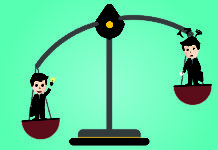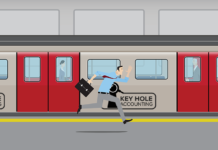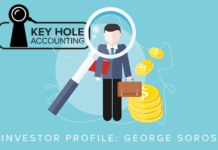We don’t care about Ashley,
Ashley don’t care about me.
All we care about is N.U.F.C.
In today’s investor profile we browse through the colourful investment history of current Newcastle United Football Club owner, Mike Ashley.
The current climate of retail shopping is arguably at its most dichotomous; whereas the previous decades were defined by an abundance of middling stores that offered apparent value and mediocre shopping experiences, now we have a failing middle and success at the very top and bottom of retail. What’s Mike Ashley got to do with this? Along with Primark, Aldi, and Lidl, Mr. Ashley is one of the principal beneficiaries of this new division in spending. His Sports Direct chains epitomise the low-end shopping experience: crammed to the rafters with products, and with all the feng shui of a warehouse’s warehouse, Sports Direct scrimps on in-store experience in favour of dirt-cheap prices.
Sports Direct
Mr. Ashley began his professional life by opening a sports shop on a quiet high street in southeast England, with the help of a £10,000-pound loan from his parents. 36 years later and Sports Direct now dominates the UK’s sport retailing scene, and the domination doesn’t appear to be slowing. Sports Direct is expanding overseas, packaging up its aggressive business model for willing markets.
Like the pioneers of the low-end airlines, Sports Direct’s focus remains on market share; low-profit margins on products keep punters coming back for more, time after time. Rival retailers, like JD Sports and JJB, have been squeezed out of the market by Sports Direct’s aggressive strategy. Unfortunately, for around 20,000 zero-hours contract workers the company’s success meant little, as members of the Sports Direct workforce had few working rights (with some reportedly paid below minimum wage). For those workers who did make it into the rare group of full-time employees at Sports Direct, the rewards were significant; a share scheme for full-timers resulted in payouts of £79,000 and up.
How does the company manage to sell its products at such a low price? A large of Magic Mike’s success came thanks to his supply chain; the owner bought brands like Dunlop, Lonsdale, and Slazenger and sold his own products instore, alongside major brands like Nike and Adidas. Similarities can be seen in media, with companies like News Corporation having owned film and TV production companies, newspapers and TV channels. Sometimes the hardest negotiations you have to make are with yourself; however, we suspect Mr Ashley goes relatively easy in those buyer meetings.
A good investment? Kerrrrrching… supply chain on lockdown.
Newcastle United FC
In 2007, Ashley bought a 41.6% majority stake in Newcastle United Football Club, and by July of 2007, he was in possession of 100% of the club. Since the takeover, news of Ashley’s involvement with the club has been littered with tensions. Results and ticket sales at one of the UK’s proudest footballing institutions have slumped, resulting in relegation in the 2015/2016 season. For fans of the Magpies, Ashley has been a southern guest that has far outstayed his welcome, and he surely knows it. On several occasions, Ashley has attempted to sell his stake in the club, only for deals to fall through. He has admitted he doesn’t have the cash to compete with the investments being made by the Premier League’s biggest clubs:
“My wealth is all in Sports Direct shares that, as I said the other week, are the same as wallpaper. I don’t have that cash in the bank, so I don’t have that ability to write a cheque for £200m. I don’t have it, it’s very simple, it’s not there. I would have to sell the Sports Direct shares to fund that.”
That fateful relegation season came during a relatively healthy period for the club, with accounts registering £48.3m in the bank; however, the club invested £80m on new players shortly after. NUFC was promoted back to the Premier League in the following season, and it’s perhaps noteworthy to mention that Ashley had not used any of the club’s profits to pay back the £129m in interest-free loans he had provided the club during his tenure as owner. It appears for Newcastle, it’s more a case of investing the money you have, not the money you will have.
Fans and manager, Rafa Benitez, want Newcastle United to return to the halcyon days of Bobby Robson, yet the club’s owner is not in a financial position to facilitate such a thing. The cash-rich investors of Chelsea and Manchester City out shadow Newcastle United and the club does not have the super-rich lining up to buy from their willing owner. For now, the fans’ ambitions and the club’s owner simply do not match.
A good investment by Ashley? I think you’re in a fettle, pet.
House of Fraser
Already owning an 11% stake in the company, Mike Ashley might be stepping in to provide a £50m loan to the struggling department store chain. Is Mike losing his touch for investment? Perhaps so, as House of Fraser is something of an antithesis for the Sports Direct age. The company exemplifies that middle ground of retail that is faring poorly in this cash-conscious age. Reports suggest Magic Mike has “cooled” on the idea and has perhaps noticed that other retailers of that ilk have struggled to cope with “rising costs, weak consumer confidence and competition from online-only rivals such as Amazon.”
Sound investment or bum note? We rate it a flat D.
Does Mike Ashley get your vote of confidence, or are his wayward tactics just a time bomb waiting to implode? Comment below!
Check back soon for another investor profile!



















